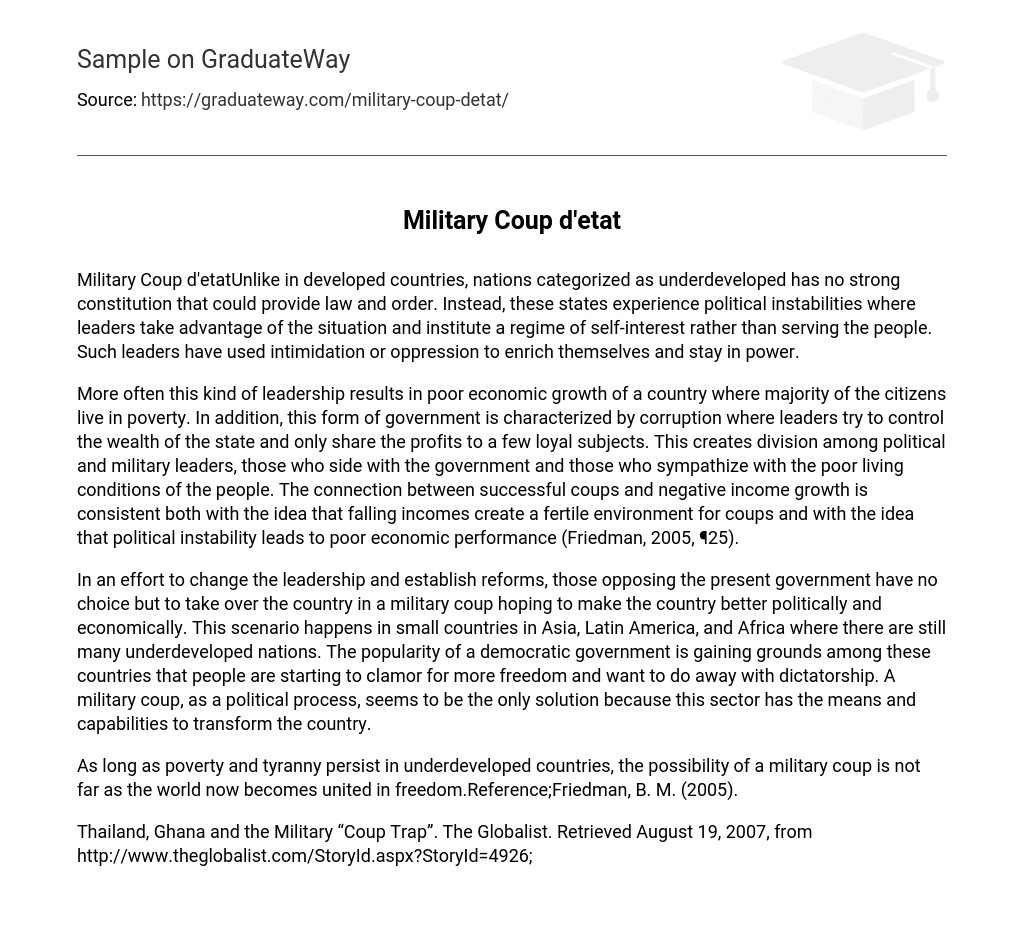Unlike in developed countries, nations categorized as underdeveloped has no strong constitution that could provide law and order. Instead, these states experience political instabilities where leaders take advantage of the situation and institute a regime of self-interest rather than serving the people. Such leaders have used intimidation or oppression to enrich themselves and stay in power.
More often this kind of leadership results in poor economic growth of a country where majority of the citizens live in poverty. In addition, this form of government is characterized by corruption where leaders try to control the wealth of the state and only share the profits to a few loyal subjects. This creates division among political and military leaders, those who side with the government and those who sympathize with the poor living conditions of the people. The connection between successful coups and negative income growth is consistent both with the idea that falling incomes create a fertile environment for coups and with the idea that political instability leads to poor economic performance (Friedman, 2005, 25).
In an effort to change the leadership and establish reforms, those opposing the present government have no choice but to take over the country in a military coup hoping to make the country better politically and economically. This scenario happens in small countries in Asia, Latin America, and Africa where there are still many underdeveloped nations.
The popularity of a democratic government is gaining grounds among these countries that people are starting to clamor for more freedom and want to do away with dictatorship. A military coup, as a political process, seems to be the only solution because this sector has the means and capabilities to transform the country. As long as poverty and tyranny persist in underdeveloped countries, the possibility of a military coup is not far as the world now becomes united in freedom.
Reference
- Friedman, B. M. (2005). Thailand, Ghana and the Military “Coup Trap”. The Globalist. Retrieved August 19, 2007, from http://www.theglobalist.com/StoryId.aspx?StoryId=4926;





